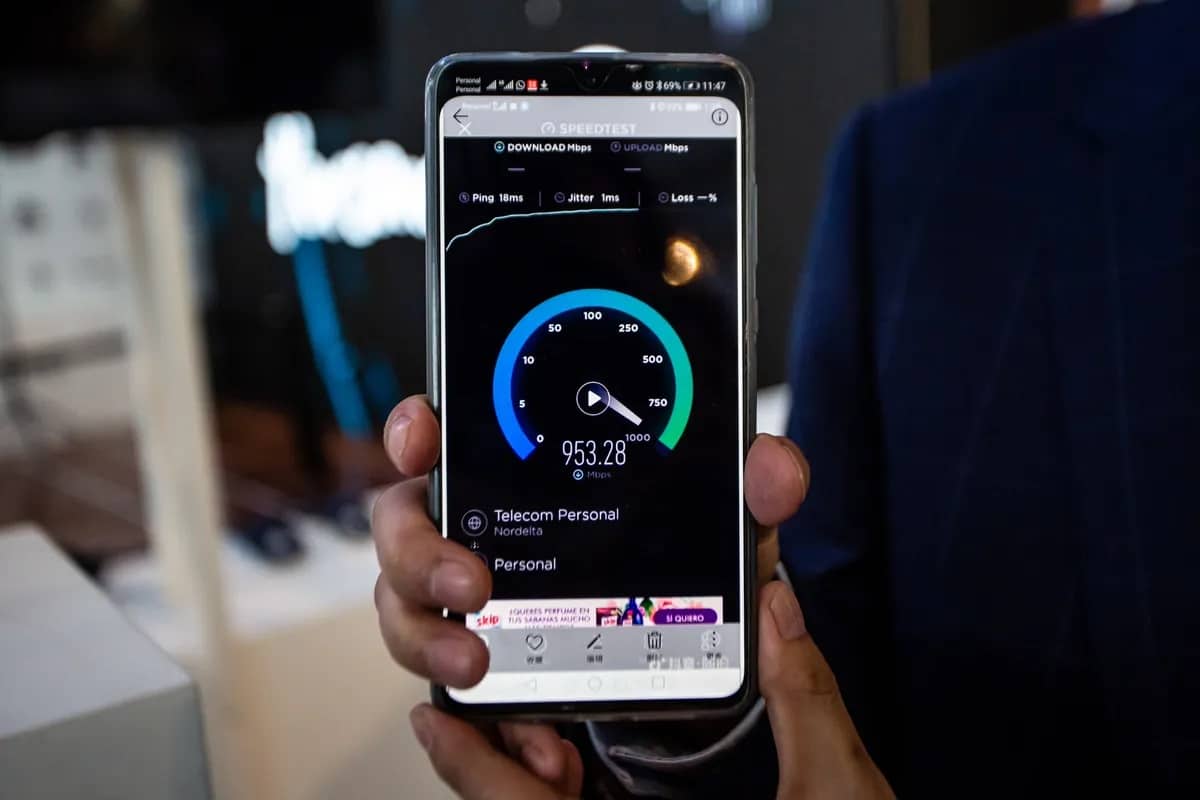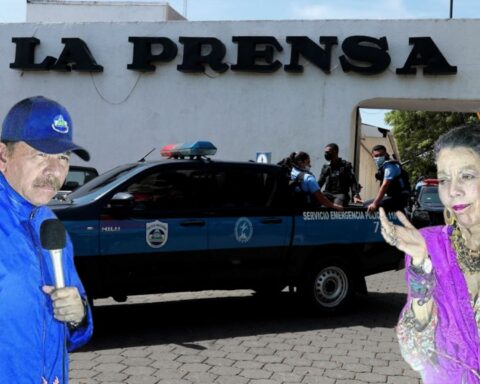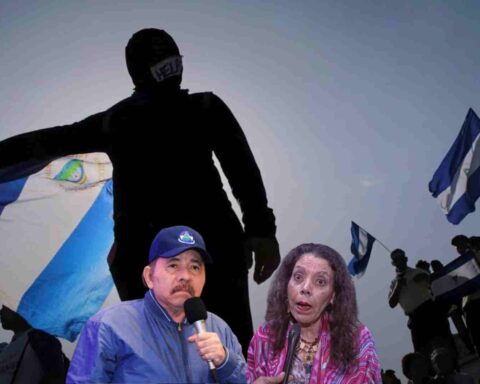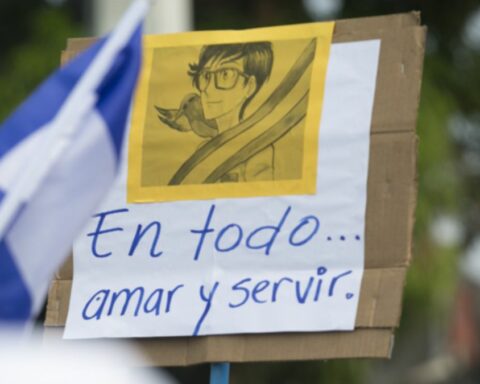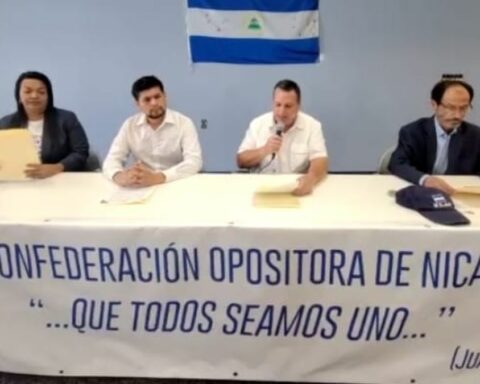Far from representing an investment opportunity for the main telephone operators, the entry of 5G technology into Nicaragua represents a risk due to the need for million-dollar investments in deficient and obsolete infrastructure, in an uncertain economic outlook and fear for the unfair competition of the Ortega regime to favor similar companieswarn telecommunications analysts consulted by CONFIDENTIAL.
The climate of uncertainty was generated from the veiled threat made by Daniel Ortega to the main operators in the sector, Claro and Tigo, after accusing them –in November of this year– of enjoying an advantageous tax regime. In addition, the scenario worsened with the start of the company’s commercial operations. TECOMUNICA, emerged in January 2017 with the merger of the state-owned Empresa Nacional de Transmisión Eléctrica (Enatrel), of Nicaragua, and the Costa Rican Electricity Institute (ICE), operating under the brand tekko.
Operators in the sector expressed their fear of Tekko becoming a new form of unfair competition, considering that the regulatory bodies favor this joint state initiative.
Doubts about the details of the company’s operation this week pushed deputies from the Public Income and Expenditure Commission of the Costa Rican Parliament will file a motion to summon the authorities of ICE and the Foreign Ministry, so that they explain the partnership with Enatrel of Nicaragua.
Eli Feinzaig, head of the faction of the Progressive Liberal Party that is part of the Commission, explained that “ICE, being a public company, has the imperative to follow a line of ethical investment, which conflicts with the concept of entering into partnership with the Ortega regime in a business such as information technology, which is precisely used for espionage and control of its citizens”.
The Nicaraguan Chamber of Telecommunications (Canitel), attached to the Higher Council for Private Enterprise (Cosep), has not ruled on the Ortega threat, nor Telcor’s announcement on the provision of three frequency bands for the development of 5G technology in Nicaragua. Neither have the telephone operators Claro and Tigo, the main ones in the Nicaraguan market.
5G technology is more expensive to develop in Nicaragua
Specialized studies establish that capital expenditures to develop 5G technology implies between 50% and 60% additional to the total investments made by the operator, which in the case of the Nicaraguan market could mean between 300 million and 500 million dollars. .
“We are talking about millions of investments that would have to be made to prepare the infrastructure for the arrival of 5G, without there being any certainty that the Government can do. So that creates uncertainty, ”he explained to CONFIDENTIAL a telecommunications specialist on condition of anonymity.
Operators interested in developing 5G technology also face the serious problem of dealing with irregular Internet coverage in Nicaragua, even in Managua and the country’s departmental capitals. This will be a factor that will be taken into account by suppliers before deciding to develop million-dollar investments.
“5G frequency bands are optimal for vertical and densely populated cities, such as New York or Chicago, to give two examples. In cities such as those in Central America, they require at least three times the investment in relation to the 800, 900 and 1800 megahertz bands, because a level of demand that makes the required investments profitable is not reached”, opined a consultant specialized in the business of telecommunications.
CONFIDENTIAL published on Thursday, November 24, that the Telecommunications and Postal Institute (Telcor), the sector’s regulatory body, issued the administrative agreement 02-2022, published in La Gaceta, Official State Gazette, reporting the reservation of the frequency bands 3300-3400, 3400-3600 and 3600-3700 megahertz for the deployment of 5G technology services in Nicaragua.
“With those bands in New York we become millionaires. Here they are a terrible burden on investment to be able to provide coverage. The higher they are, the less the frequency propagates and therefore more base stations must be installed. Those bands or even higher, are designed for smart cities where a hyperconnectivity platform is created”, explained the consultant.
“In developed countries, the attributions even reach 30 megahertz, but that doesn’t work here. There is no population density or horizontal, much less vertical, such as Manhattan. This is a matter of population, existing infrastructure, real demand, that is to say with purchasing power, and of course that there are flourishing businesses”, he added.
5G would boost data and video transmission
In a Press release May 2022, within the framework of the celebration of the month of telecommunications, Claro, a subsidiary of América Móvil, owned by the Mexican billionaire Carlos Slimreported that their investments in infrastructure and technological innovation in Nicaragua exceed 1 billion dollars.
Tigo entered the Nicaraguan market as part of the purchase of the operations in Central America of the Spanish company Telefónica. In the specific case of the subsidiary in Nicaragua, the subsidiary of the company Millicom International Cellular, SA (CNMV) paid 397 million euros.
According to a press release from this operator, in June 2022, this company has around 50 million dollars a year to expand its investments in Nicaragua.
“Operators should be designing their infrastructure investment strategies to enable 5G and be able to offer services that could not be provided with 4G before, mainly in data transmission and what we call the internet of thingsbut there is uncertainty in the sector”, stressed the telecommunications specialist.
The internet of things refers to the functions arranged for the so-called “smart home”, where many normal activities are carried out by devices connected to a home network, either through voice commands or a mobile device. Some of the best-known devices are Amazon’s Echo personal assistants or those that work with Google Home.
It is estimated that the telecommunications industry in Nicaragua will generate income of 667.1 million dollars in 2022. In the country there are around six million mobile lines, a segment in which Claro has around 55% participation and Tigo has almost all the the rest. 100% of the municipalities have cellular coverage, (consequently, mobile internet access), which covers 85% of the population. In addition, 45% of the municipalities have LTE (or 4G) technology.
The threat from China through 5G
The arrival of 5G in Nicaragua also puts Nicaragua on the board of the commercial conflict between China and the United Statesin which this technology plays a crucial role.
A report released by the specialized portal El Economista points out that the 5G technological race involves key aspects such as control over the flow of information and communications.
The article highlights that the main companies that offer equipment and complete systems for the operation of 5G technology are Huawei (China), Ericsson (Sweden), Nokia (Finland), Samsung (Korea) and ZTE (China).
“Huawei currently leads the way in developing products built on the new high-speed, low-latency standard of 5G, putting it in a position to provide basic infrastructure components to many countries and carriers urgently seeking to upgrade mobile networks,” the statement said. article, citing reports from the NATO Cyber Defense Center of Excellence (CCDCOE).
“Despite the great importance of the United States in Latin American economies, the region’s priority is focused on providing access to communication technologies. Therefore, China’s advanced-level equipment at low prices is attractive to many countries in the Latin American region, regardless of Washington’s warnings,” the article added.
In Nicaragua, the presence of China in the technological field is represented by the company Cootelwhich is the trademark of the operator Xinwei, owned by the businessman wang jingto whom Ortega granted the failed interoceanic canal project, bogged down since its inception and widely rejected by the Peasant Movement due to the threat to sovereignty.
This operator has not been able to establish itself commercially in Nicaragua, despite the fact that the Ortega and Rosario Murillo regime –through Telcor– directly awarded it a frequency band, in addition to great regulatory facilities to establish itself.
Jing assured that Cootel’s entry would be accompanied by an investment of 2 billion dollars to establish itself as the main Internet provider in Nicaragua. However, these investments never materialized and Cootel did not take off as a relevant operator in the local market.
The US warning towards Chinese devices
Margaret Myers, director of the Asia and Latin America program of the Inter-American Dialogue, and Guillermo García Montenegro, warned in a analysis released by the prestigious think tankthat the “Latin American region appears to be more focused on gaining access to high-speed telecommunications technologies than on the possibility of surveillance and other security risks from China.”
“Regional governments are also apparently unalarmed by US warnings about limiting partnerships with countries that use Chinese telecommunications equipment,” the article added.
the regime restored diplomatic relations with China on November 10, 2021, after practically expelling from the country the representation of Taiwan, Ortega’s main cooperator for 15 years.
“Latin American governments find themselves in an unenviable position as they try to strengthen their ties with China while limiting backlash from the United States. The competition between the United States and China —whether it is in commercial matters, the situation of Taiwan or the technological space— clearly has an impact on the countries of Latin America”, quotes the Inter-American Dialogue article.
“Regarding the 5G issue, the US government has insisted that its warnings to Latin American governments about Chinese technologies are based on real and concrete security concerns and are not intended to promote US economic interests,” he adds.
China has not yet announced any specific investment or project in technologies with Nicaragua within the framework of the reestablishment of diplomatic relations. And it is that the most technological that China has given to Nicaragua, until now, are some small kits received by Laureano Ortega Murillo, which will supposedly be distributed in public primary schools in the country.

